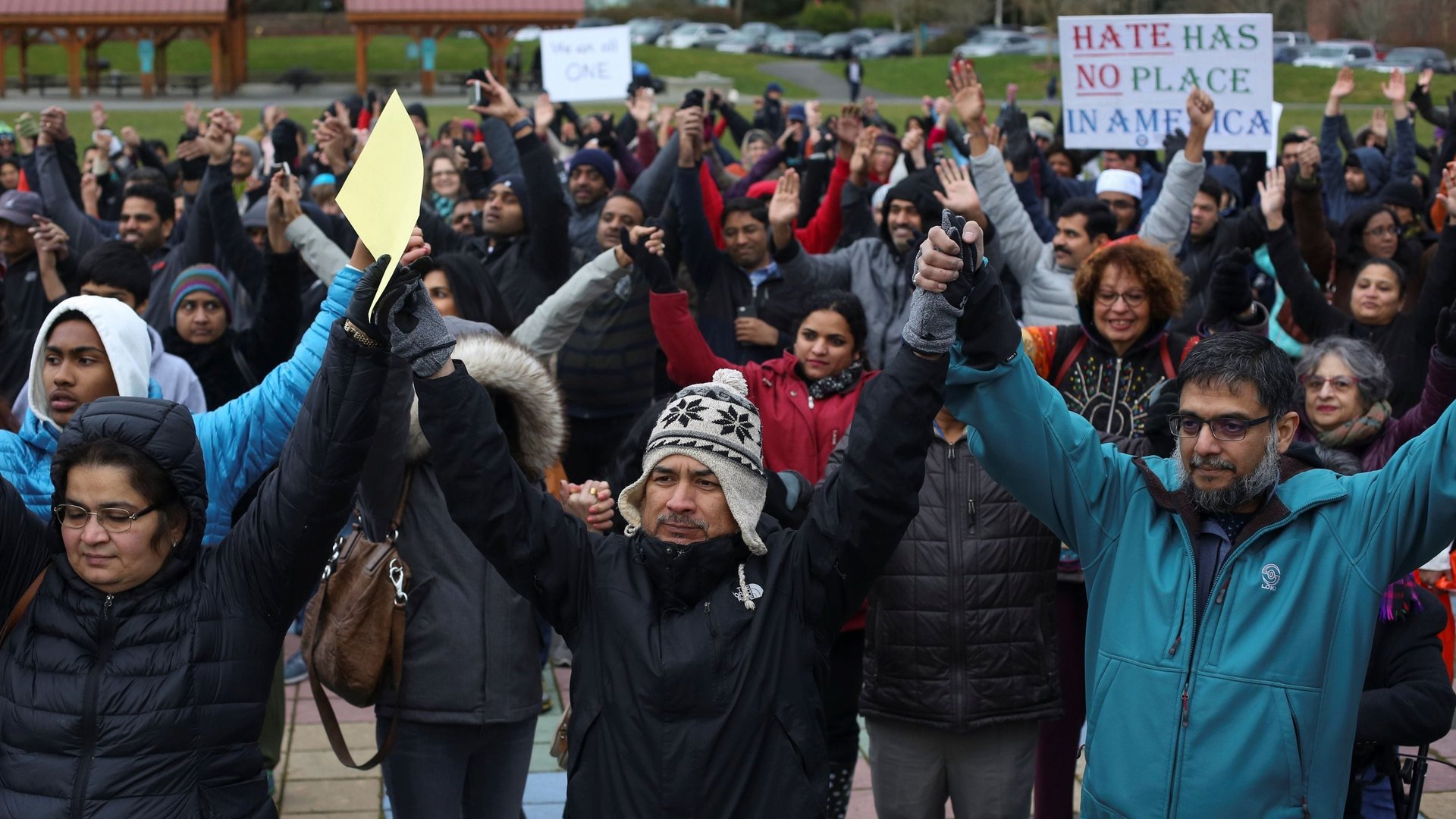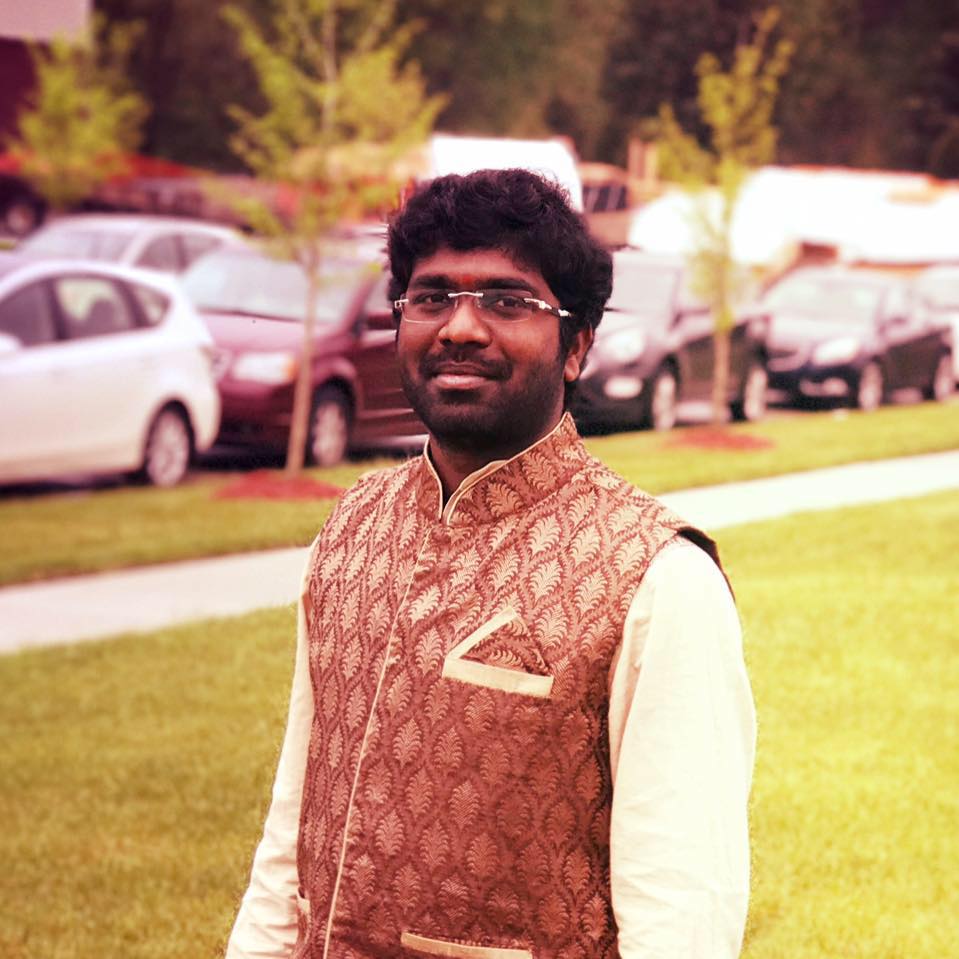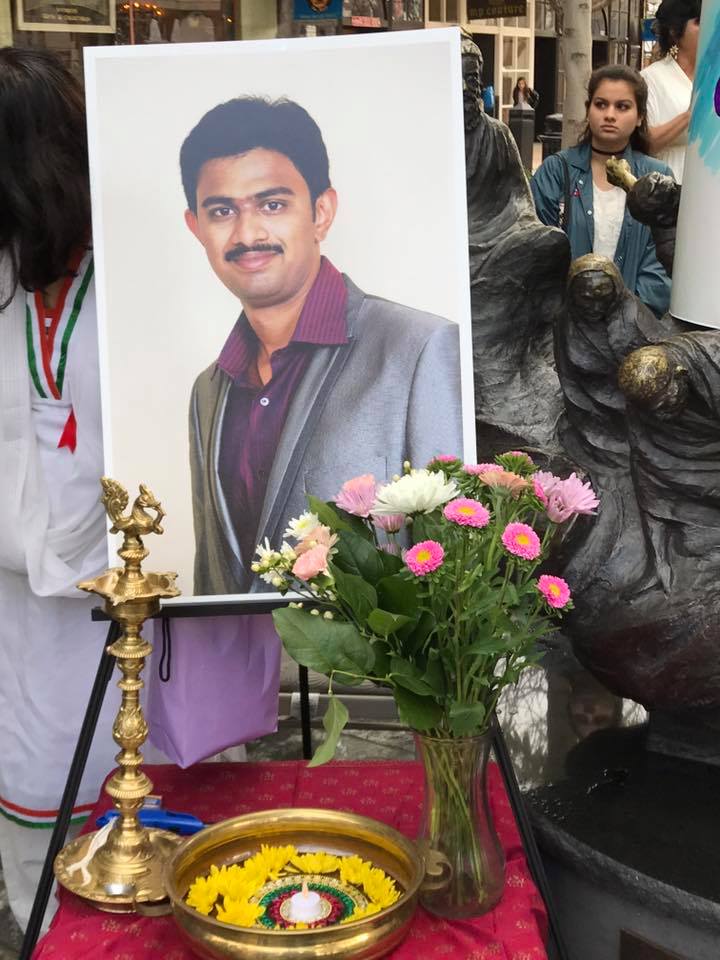Many Indian immigrants killed by gun violence in the US come from the same state
On Jan. 03, Sai Krishna Poosa, a 26-year-old engineer of Indian origin, was shot by robbers in Detroit while returning home from work. The gunmen reportedly fired three rounds at Poosa and then fled with his wallet and car. Passersby found him lying on the road and notified the authorities.


On Jan. 03, Sai Krishna Poosa, a 26-year-old engineer of Indian origin, was shot by robbers in Detroit while returning home from work. The gunmen reportedly fired three rounds at Poosa and then fled with his wallet and car. Passersby found him lying on the road and notified the authorities.
The electrical engineering graduate from Lawrence Tech University, Southfield Michigan, is set to undergo multiple surgeries. To help pay his hefty hospital bills, Poosa’s friends set up a crowdfunding page. Within two days, they surpassed the $250,000 target and the donations are still pouring in as he battles for his life.
The attack on Poosa happened just two months after Sunil Edla, 65, was shot dead in New Jersey by a 16-year-old in a carjacking incident.

The common thread between the two crimes? The victims’ place of origin. Both Poosa and Edla moved to the US from the southern Indian state of Telangana.
Poosa, who hails from the city of Warangal, got his B. Tech degree in Hyderabad in 2014 and moved to the US for his master’s the following year. Edla migrated to the US back in 1987 from Telangana’s Medak district.
The similarity isn’t coincidental. The state exports an outsize number of IT professionals to America. In fact, notable tech leaders like Microsoft’s Satya Nadella and Adobe Systems CEO Shantanu Narayen are both from Hyderabad, Telangana’s capital. The state is even home to a “visa” temple known to attract devotees hoping to secure work in the West.
Hyderabad tops the list of world cities that send aspiring engineers to the US. Between 2008 and 2012, over 26,000 students from the city went to the US, and more than 20,000 of them were pursuing degrees in science, technology, engineering, or mathematics (STEM) fields, a Brookings Institution report (pdf) revealed.
The US consulate in Hyderabad doled out 173,000 non-immigrant visas in 2017 and ranks among the top 10 globally for both student and business visas. In the recent past, Telugu, the local language of Telangana, has been the fastest-growing language in the US, posting a 86% uptick between 2010 and 2017 to reach 415,000-plus native Telugu speakers by now.
The growing list of crimes
While many techies from Telangana build wholesome lives for themselves in the US, a number of them get caught in the crosshairs of hate crimes and other violence.

For instance, in February 2017, software engineer Vamshi Reddy Mamidala, a 27-year-old from Vangapahad village in Telangana’s Warangal district, was gunned down by a drug addict outside his apartment’s garage in Milpitas, California. The same month, US Navy veteran Adam Purinton shot Srinivas Kuchibhotla and his friend Alok Madasani, both 33-year-old techies from Hyderabad, in a hate crime at a bar in Olathe, Kansas. Madasani survived but Kuchibhotla did not.
In July 2018, Sharath Koppu, a 26-year-old student at the University of Missouri, Kansas City, who hailed from Warangal, was shot dead in an armed robbery at a restaurant.
Of course, some argue that many of these crimes are not racially motivated but the result of being at the wrong place at the wrong time.
“This was an unfortunate incident where Sharath happened to be at the store when the assailant made a failed robbery attempt,” Jagdeesh Subramanian, president of the India Association of Kansas City, told Quartz in the aftermath of Koppu’s shooting. “This could have been anyone honestly since the motive was money…I don’t think anyone yet would take the current situation and make the conclusion of US being an unsafe place for immigrants, especially of Asian descent.”
But that doesn’t mean the fear isn’t pervasive among the nearly four-million strong Indian diaspora in the US.
Heightened anti-immigrant rhetoric has come to the fore since president Donald Trump took office in January 2017, and hate crimes in the US are on the rise. Social-justice advocacy group South Asian Americans Leading Together (SAALT) documented 302 incidents of hate violence and xenophobic political rhetoric aimed at south Asian, Muslim, Sikh, Hindu, Middle Eastern, and Arab communities in the US—a more than 45% increase from the year leading up to the 2016 election cycle. The wave of violence reached “heights not seen since the year after the attacks of September 11, 2001,” the organisation said in a report from early 2018 (pdf).
Families of immigrants back home in India are definitely perturbed. “The situation seems to be pretty bad after Trump took over,” said Madasani Jaganmohan Reddy, father of Kansas shooting survivor Alok. “I appeal to all the parents in India not to send their children to the US in the present circumstances.”